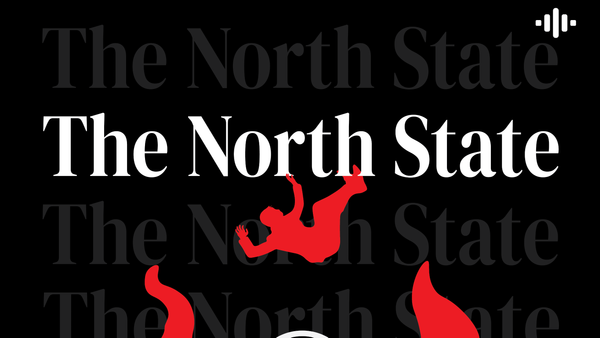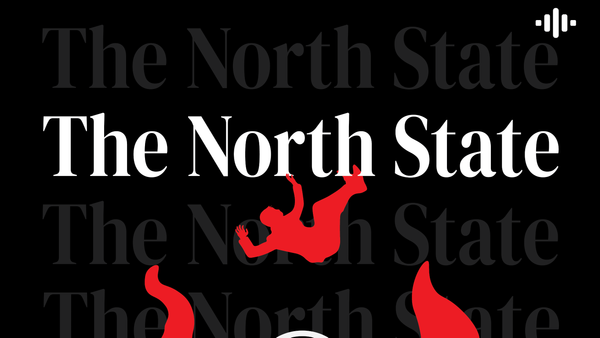Is it Ethical to Teach Journalism?
Insights from a mature student who knew what he was getting into

Often in this newsletter, we cover trends or ideology in the news industry. Lately, it's been hard to write about anything without having to confront the massive layoffs and damage to working reporters and their livelihood.
One sentiment spreading in the aftermath of the latest news media bloodbath has been something along the lines of "With the current state of the industry, is it ethical to teach journalism?" This idea was shared by senior multimedia editor for Scientific American Tulika Bose in a tweet, as well as in an opinion article for The Guardian by their feature writer Sirin Kale. "Next week I’m giving a lecture to a group of journalism students," Kale wrote in the Feb. 27 piece. "I don’t know what to tell them, or if it’s even ethical to advise anyone to go into this industry any more."
As a mature student attending post-secondary to obtain a journalism degree, I feel as though my experience uniquely qualifies me to answer this question. At the very least, to provide a different way of looking at this situation. As such, this week's edition will be more of a personal essay.
Put simply, it was never ethical to teach journalism in post-secondary institutions.
If that's how I feel, why did I take a journalism program? I had done journalism before I began my studies. Multiple people in the industry told me that a journalism degree isn't necessary to do the work... and these are connections I cultivated before taking the program! I agree. A degree isn't necessary to do the work. The unfortunate truth, however, is that the work isn't what allows someone to be a journalist. It's access.
Journalism programs across Canada provide an environment to cultivate skills, yes, but it also allows an opportunity for students to meet editors, journalists, professors and other people in the industry who they will be working with in the future. They will also be working alongside their classmates once they graduate, classmates that could very well be their coworkers or managers. These are connections that can only be forged through the extended time spent together, learning each other's reporting styles, drive to do good work and areas of specialty. Through this program, I have met professors, editors and classmates who I know are good reporters or do work that allows good journalism to flourish. I would not have made these connections if I had carved my own path. Or, at the very least, not as easily. This access is most easily attained through a journalism program.
A degree isn't necessary to do the work. The unfortunate truth, however, is that the work isn't what allows someone to be a journalist. It's access.
Another reason is degree inflation. Gone are the days where news agencies will hire a nobody, give them an opportunity, then hire them full-time. This still happens on occasion, but on a purely freelance basis and with an established name. I began my writing career penning dildo jokes for The Beaverton (I regret nothing). This has been what's opened doors to places like Kingstonist and Ricochet. I was funny, but more importantly, I was published funny. I have skills in covering politics, too. But comedy opened the door in those cases.
That's not how reporting at bigger news agencies works. When I entered the program, I had hoped to work for Canadaland, Vice News, or the Toronto Star. These are all big enough outlets that require some sort of cred. The easiest way to obtain that cred is with a degree.
Of course, those dreams have been destroyed by Zionist whinging and corporate greed in the first two cases. But if I were to work for the Toronto Star, it may be true that my pieces speak for themselves, but a degree speaks louder. It's unclear how likely a full-time position at the Star is with my vocal positions on certain issues, but it's far more likely with a journalism degree.
Thirdly, I originally wanted a degree in political science. Contrary to popular belief, there are jobs in the field with that degree, but they're typically with the government or a think tank. No, thanks.
Does this mean that a degree is necessary to be a journalist in Canada? Absolutely not. Another reason I was selected for serious reporting was my writings on my Medium page. I wrote those for free and for myself. When talking about my capability, I could point to those pieces and have the work showcase my abilities. It's more difficult, to be sure, but it's certainly possible to do it outside of the academic path. So I want to be clear to anyone reading this who may be contemplating making their mark in journalism: you do not need a degree.
But I do. I work best in academic structures, especially when I'm motivated about the subject matter. I wanted to live in Toronto at some point in my life,* I wanted to take politics courses. I wanted to challenge myself academically. I am a hermit and have to be forced to make connections (which school does). Most importantly, I had the finances to do so comfortably. I imagine a lot of my classmates (who have a lot less life experience) probably have similar reasons. It's valid.
I don't want to be misunderstood: there are valuable things being taught at university programs and valuable research being done. But journalism should specifically focus on news to inform the average, working-class person. Our public schools are completely uninterested in teaching media literacy. Providing a good foundation for understanding how to critically read and evaluate news is important.
So why is it unethical to teach journalism in post-secondary institutions? Because journalism shouldn't be academically specialized and put behind a massive pay-wall. These skills should be taught to people on the job. Journalism is a sort of trade. I built cabinets for nearly 10 years, I can say that. People need to be taught the ins and outs of daily reporter life. How to conduct an interview, how to file a Freedom of Information request, how to access records, how to read financial reports. Apprenticeship is equally valid in this regard.
Additionally, it's vital to learn how to critically evaluate our system and the biases within it: colonialism, capitalism, racism, patriarchy, heteronormativity. News employers struggle to do this at all, let alone for new hires.
Why isn't teaching on the job the standard? Simple. It's too expensive for private companies. Why pay someone to teach them when they can pay a post-secondary institution to learn the same thing? More money for the executives, please. The same executives that our systemic biases protect. That would be why they don't have robust programs for teaching about the fundamental flaws in our system.
The question "Is it ethical to teach journalism?" is a faulty one, because it presupposes the point of the degree is to land a job at a giant news outlet. Truthfully, this is actually the point of a degree, and asking this question reveals that. But these same outlets that students hope to provide them with comfortable livings are also major dangers to journalism. It's unethical to paint a job with them as the platonic ideal. The point of journalism shouldn't be to get a comfortable job at a big company reporting news to satisfy the status quo. That doesn't preclude good journalism from being done if that happens, but that should be used to serve the real point: informing the wider public. Our news ecosystem shows that preserving ideological framing and creating massive profits for executives takes precedent.
No, it's not unethical to teach journalism. It's unethical to place these tools, connections and credibility behind a socioeconomic barrier. It's unethical to mislead students about their possibility of employment. It's unethical to tie the worth of their reporting to their job prospects. It's unethical to propose that journalists leaving the industry, while an entirely justifiable response to these developments, is healthy for society. We need journalists, but we can't lie to them about the state of things.
I knew the future of the industry when I enrolled in my program. I knew that after graduation, I would most likely have to freelance for some time while supporting myself with another job. I knew that the connections and degree were worth more than any of the skills they taught me. The flip side of my approach are the teenagers just coming out of high school, looking for a job they're passionate about that has the potential to change their communities. They didn't know what I do. I certainly didn't at that age (I got a diploma in radio for fuck's sakes). So they should know what they're getting into. They should know that journalism can be done while earning a living. They should know why the industry seems hopeless right now.
And they should know all these things without having to pay thousands of dollars every year.
* My review? Eh.





